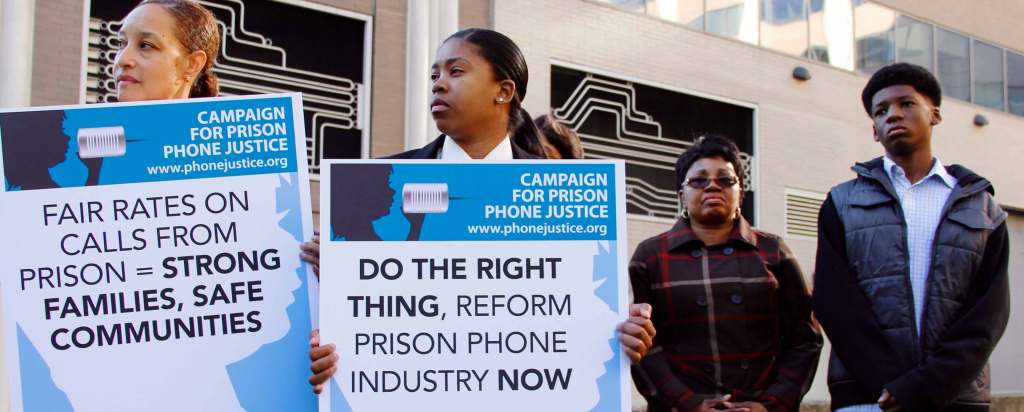 MAG-Net Media Action Grassroots Network
MAG-Net Media Action Grassroots NetworkFor too long, families and friends of prisoners had an impossible choice between two unjust options: They could lose touch with their incarcerated loved one, or stay connected by paying inflated phone fees costing as much as a dollar a minute. The high costs of these phone calls put a major burden on families who were already struggling to stay connected. For some families—most already facing limited income—inflated phone bills added up to tens of thousands of dollars over the years.
So it was a huge victory when the U.S. Federal Communications Commission voted last week to cap the rates and feesthat companies charge for phone service in prisons and jails. By making these calls more affordable, the new regulations will make it easier for families to keep in touch with incarcerated loved ones by phone—to maintain the invaluable human connections that all people need.
So why were the calls so pricey to begin with? In exchange for very high commissions and access to what others have noted is quite literally a captive market, many prisons offered exclusive deals to phone service providers in exchange for fees. Officials have called this practice an “egregious case of market failure.” Others call it legitimized bribery or kickbacks. Just as straightforwardly, we can call it a serious injustice. As FCC Commissioner Mignon Clyburn told The Washington Post, “This system has preyed on our most vulnerable for far too long….Families are being further torn apart and the cycle of poverty is being perpetuated.”
Activists, including the Campaign for Prison Phone Justice—led by a group of over 50 diverse organizations, allies, incarcerated people and their families—had fought for these changes for years. Today, they are celebrating the relief they will bring to millions of families. And they are calling their loved ones and collaborators inside prisons, to thank them for courageously sharing the very personal stories of financial hardship that put human faces on this injustice and helped bring it to an end.
